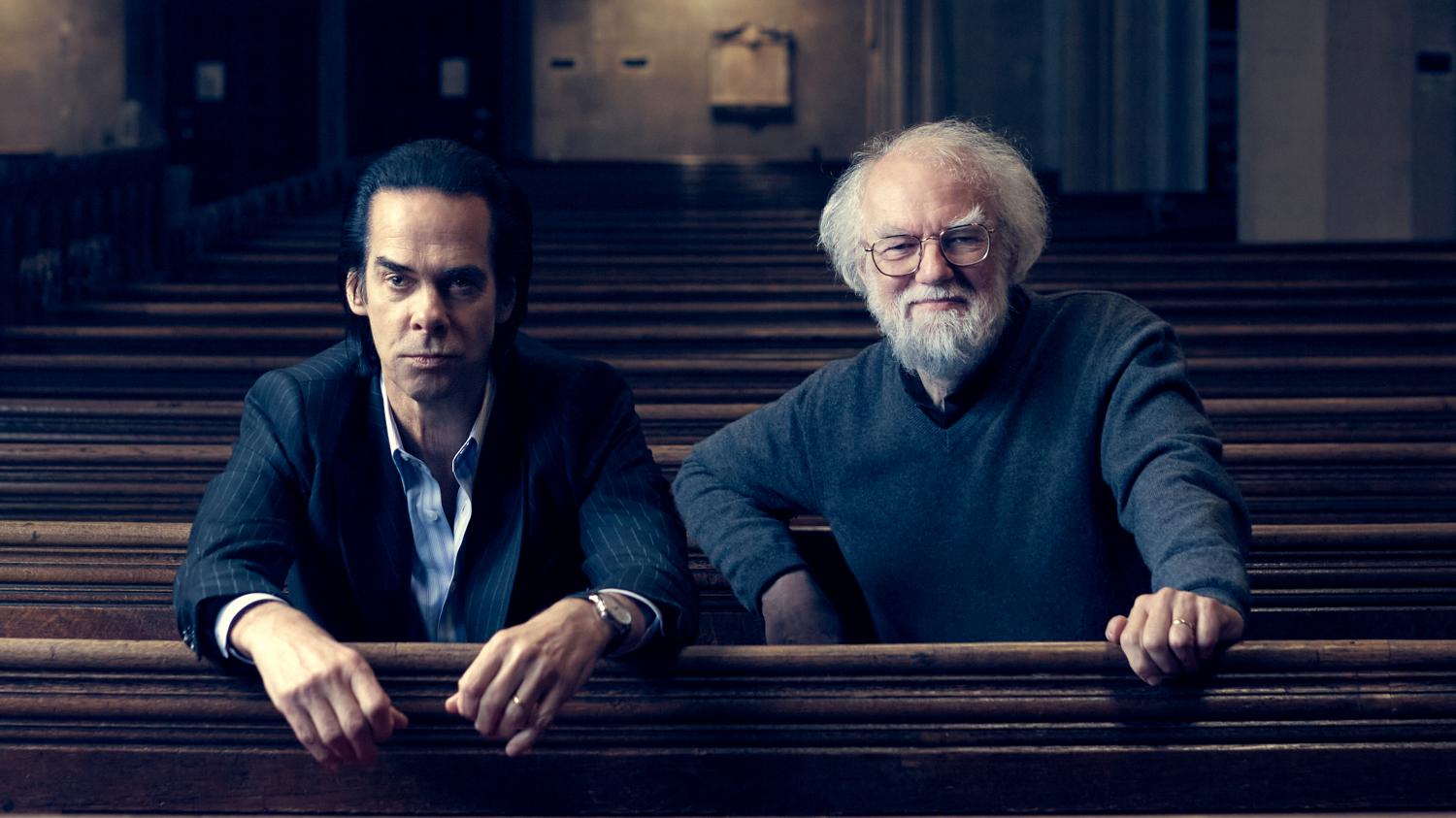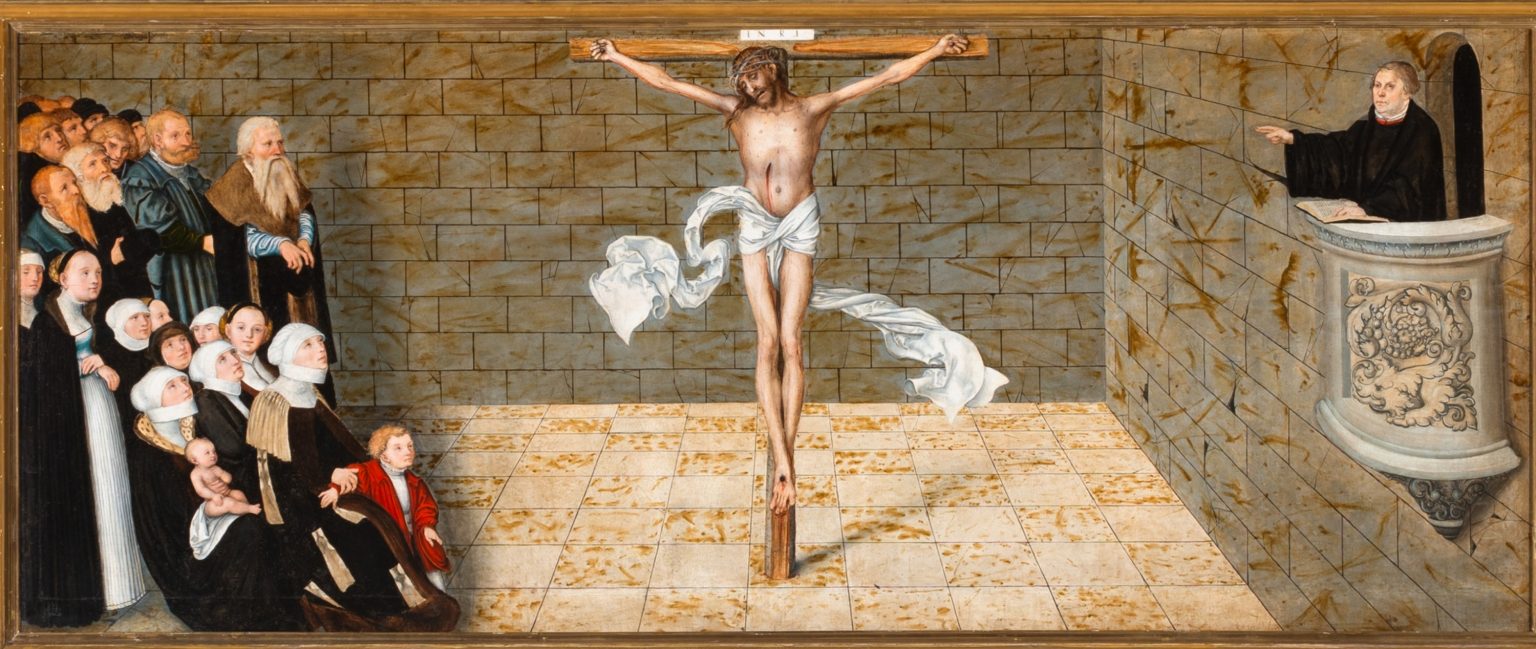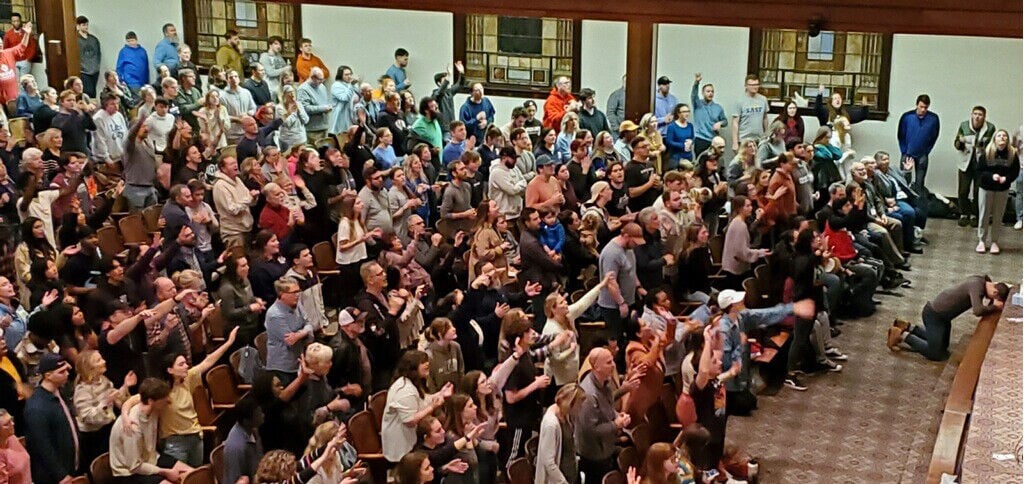“The Weekend Wanderer” is a weekly curated selection of news, news, stories, resources, and media on the intersection of faith and culture for you to explore through your weekend. Wander through these links however you like and in any order you like. Disclaimer: I do not necessarily agree with all the views expressed within these articles but have found them thought-provoking.
 “God’s Purpose in Your Pain: What good could suffering possibly serve? A pastor reflects on what he has learned from losing a son to suicide.” – Rick Warren in Plough: “Because we live in a world broken by sin, life is painful. Almost everyone is living with some kind of pain. The type varies – it may be physical, relational, mental, emotional, financial, social, or spiritual – but it all hurts. Pain is inevitable; none of us is able to opt out of it. As a minister for fifty years, I’ve spent my life helping people in pain, and I’ve never had to look far to find it. To cope with this reality, we desensitize ourselves and detach ourselves from others who are suffering. One of the great challenges in my ministry has been to stay sensitive while witnessing so much distress. One way God has kept me empathetic toward others’ pain has been by giving me what the apostle Paul calls “a thorn in the flesh” (2 Cor. 12:7). I’ve lived with chronic pain for most of my adult life. As I was writing this article, I had to pause for my fifth hospitalization in a year. So what I’m sharing with you is not just theory, but truths learned through pain that have enabled me to carry on in spite of it. I’ve learned that pain should not be wasted, but used for God’s purposes. Scripture is clear that following Christ doesn’t exempt us from suffering. Instead we’re told to expect it (1 Pet. 4:12, John 16:33) and to consider suffering for Christ a privilege (Phil. 1:29). Peter says, ‘Those who suffer according to God’s will should commit themselves to their faithful Creator and continue to do good’ (1 Pet. 4:19). Submitting to God’s will does not protect you from suffering. In fact, sometimes doing the right thing creates pain.”
“God’s Purpose in Your Pain: What good could suffering possibly serve? A pastor reflects on what he has learned from losing a son to suicide.” – Rick Warren in Plough: “Because we live in a world broken by sin, life is painful. Almost everyone is living with some kind of pain. The type varies – it may be physical, relational, mental, emotional, financial, social, or spiritual – but it all hurts. Pain is inevitable; none of us is able to opt out of it. As a minister for fifty years, I’ve spent my life helping people in pain, and I’ve never had to look far to find it. To cope with this reality, we desensitize ourselves and detach ourselves from others who are suffering. One of the great challenges in my ministry has been to stay sensitive while witnessing so much distress. One way God has kept me empathetic toward others’ pain has been by giving me what the apostle Paul calls “a thorn in the flesh” (2 Cor. 12:7). I’ve lived with chronic pain for most of my adult life. As I was writing this article, I had to pause for my fifth hospitalization in a year. So what I’m sharing with you is not just theory, but truths learned through pain that have enabled me to carry on in spite of it. I’ve learned that pain should not be wasted, but used for God’s purposes. Scripture is clear that following Christ doesn’t exempt us from suffering. Instead we’re told to expect it (1 Pet. 4:12, John 16:33) and to consider suffering for Christ a privilege (Phil. 1:29). Peter says, ‘Those who suffer according to God’s will should commit themselves to their faithful Creator and continue to do good’ (1 Pet. 4:19). Submitting to God’s will does not protect you from suffering. In fact, sometimes doing the right thing creates pain.”
 “Nick Cave: my son’s death brought me back to church” – Rowan Williams interviews Nick Cave in The Sunday Times: :”Meeting Nick Cave in the vestry of a church in central London — hard wooden chairs, miscellaneous cupboards and buckets, stacks of pale green teacups — is slightly surreal. Cave’s long and turbulent career as one of the foremost singer-songwriters of the past half century, a career marked by struggles with trauma, addiction and a reputation for inhabiting some extreme edges in human creativity, might not seem to lead very obviously to a place like this. But when he arrives — the familiar figure, tall, gaunt, pale, a dark suit and white shirt under a black overcoat — he shows no signs of disorientation. The Nick Cave who grew up in the Australian town of Wangaratta and sang as a choirboy in its Holy Trinity Cathedral, who has throughout his career startled his audiences with lyrics saturated with God and echoes of the Bible, is not exactly a stranger here. In his recent book of conversations with the music journalist Sean O’Hagan, Faith, Hope and Carnage, he speaks with raw clarity about how his creative energy has been fed by the experience of agonising grief and loss. At the heart of this is the death of Arthur, his 15-year-old son, in 2015, after falling from a cliff edge near Brighton — one of many bereavements in his life. Heartbreakingly Cave has since lost another son, 31-year-old Jethro. All this has come to be bound up for him with the awareness of the holy. He has been drawn back to some sense of belonging within the battered, inarticulate and compromised community that is the Church. Asked by the publisher to share my thoughts on Faith, Hope and Carnage, I could say only that I could think of few books that had brought home more completely the way in which grief and creativity work together. The book also reveals the way in which faith, without ever giving a plain, comforting answer, offers resources to look at what is terrible without despair or evasion. Cave’s faith is not that of a man looking for shortcuts or consolations. At one point he speaks about the ‘spiritual audacity’ that he felt coming to birth in the wake of Arthur’s death — “a kind of reckless refusal to submit to the condition of the world”. That recklessness is what I want to hear more about as we meet.”
“Nick Cave: my son’s death brought me back to church” – Rowan Williams interviews Nick Cave in The Sunday Times: :”Meeting Nick Cave in the vestry of a church in central London — hard wooden chairs, miscellaneous cupboards and buckets, stacks of pale green teacups — is slightly surreal. Cave’s long and turbulent career as one of the foremost singer-songwriters of the past half century, a career marked by struggles with trauma, addiction and a reputation for inhabiting some extreme edges in human creativity, might not seem to lead very obviously to a place like this. But when he arrives — the familiar figure, tall, gaunt, pale, a dark suit and white shirt under a black overcoat — he shows no signs of disorientation. The Nick Cave who grew up in the Australian town of Wangaratta and sang as a choirboy in its Holy Trinity Cathedral, who has throughout his career startled his audiences with lyrics saturated with God and echoes of the Bible, is not exactly a stranger here. In his recent book of conversations with the music journalist Sean O’Hagan, Faith, Hope and Carnage, he speaks with raw clarity about how his creative energy has been fed by the experience of agonising grief and loss. At the heart of this is the death of Arthur, his 15-year-old son, in 2015, after falling from a cliff edge near Brighton — one of many bereavements in his life. Heartbreakingly Cave has since lost another son, 31-year-old Jethro. All this has come to be bound up for him with the awareness of the holy. He has been drawn back to some sense of belonging within the battered, inarticulate and compromised community that is the Church. Asked by the publisher to share my thoughts on Faith, Hope and Carnage, I could say only that I could think of few books that had brought home more completely the way in which grief and creativity work together. The book also reveals the way in which faith, without ever giving a plain, comforting answer, offers resources to look at what is terrible without despair or evasion. Cave’s faith is not that of a man looking for shortcuts or consolations. At one point he speaks about the ‘spiritual audacity’ that he felt coming to birth in the wake of Arthur’s death — “a kind of reckless refusal to submit to the condition of the world”. That recklessness is what I want to hear more about as we meet.”
 “Only eight churches remain open in Algeria” – Katey Hearth in Mission Network News: “A state-led campaign against Protestant churches continues in Algeria. Last month, believers told MNN that only ten churches remained open in the entire country. Today, ‘there are eight (churches) left open, but you never know for how long,’ says Youssef*, a Protestant leader partnering with Operation Mobilization USA. ‘[The remaining churches] have been visited by the authorities, and you never know what will happen tomorrow.’ A 2006 law set the tone for legal persecution. Then, ‘the plan started in 2018 to close down all the churches,’ Youssef says. The systematic church closures are part of a broader lockdown on individual freedoms. Last month, Algeria’s government shut down several civic groups. It also forced Algeria’s oldest independent human rights organization to close its doors. ‘This is the situation we’re in. It’s quite sensitive, delicate, and challenging,’ Youssef says. The small but growing indigenous Christian population – mainly converts from Islam and their children – stands firm. ‘The Church in Algeria will never disappear because the vast majority of the Christians are Berber [and] Kabyle,’ Youssef says.”
“Only eight churches remain open in Algeria” – Katey Hearth in Mission Network News: “A state-led campaign against Protestant churches continues in Algeria. Last month, believers told MNN that only ten churches remained open in the entire country. Today, ‘there are eight (churches) left open, but you never know for how long,’ says Youssef*, a Protestant leader partnering with Operation Mobilization USA. ‘[The remaining churches] have been visited by the authorities, and you never know what will happen tomorrow.’ A 2006 law set the tone for legal persecution. Then, ‘the plan started in 2018 to close down all the churches,’ Youssef says. The systematic church closures are part of a broader lockdown on individual freedoms. Last month, Algeria’s government shut down several civic groups. It also forced Algeria’s oldest independent human rights organization to close its doors. ‘This is the situation we’re in. It’s quite sensitive, delicate, and challenging,’ Youssef says. The small but growing indigenous Christian population – mainly converts from Islam and their children – stands firm. ‘The Church in Algeria will never disappear because the vast majority of the Christians are Berber [and] Kabyle,’ Youssef says.”
 “Protestant bodies, Protestant bedrooms, & our furious need for a theology thereof” – Beth Felker Jones at Church Blogmatics: “Gentle reader, If you’ve read the article at The Gospel Coalition’s (TGC) website, you know the one I’m talking about. If you haven’t, no need to go looking for it; I’ll fill you in. The article is bad, and I’m going to say so. When something is false and damaging, calling it so isn’t meanness; it’s truth telling. Those teaching this theology are accountable for it. The editors at TGC, an organization that claims to champion the very gospel of Jesus Christ, are accountable. When someone tells lies about the good news of Jesus, it’s theology’s job to call out those lies. The truly bad article has not come to us out of nowhere; too many Christians are getting similar stuff from church leaders they trust. The article is a loud canary in the mine shaft, but there are a lot of quieter canaries down there too, and while we may be tempted to write this thing off as an over the top aberration, it isn’t. It fits all too well with teaching I hear from complementarian niches of the church, all the time. One friend tells me the rhetoric of the article is downright tame, compared to what she constantly heard growing up. This kind of theology is causing devastating damage for the people of God. Maybe the very bad article can be a wake-up call.“
“Protestant bodies, Protestant bedrooms, & our furious need for a theology thereof” – Beth Felker Jones at Church Blogmatics: “Gentle reader, If you’ve read the article at The Gospel Coalition’s (TGC) website, you know the one I’m talking about. If you haven’t, no need to go looking for it; I’ll fill you in. The article is bad, and I’m going to say so. When something is false and damaging, calling it so isn’t meanness; it’s truth telling. Those teaching this theology are accountable for it. The editors at TGC, an organization that claims to champion the very gospel of Jesus Christ, are accountable. When someone tells lies about the good news of Jesus, it’s theology’s job to call out those lies. The truly bad article has not come to us out of nowhere; too many Christians are getting similar stuff from church leaders they trust. The article is a loud canary in the mine shaft, but there are a lot of quieter canaries down there too, and while we may be tempted to write this thing off as an over the top aberration, it isn’t. It fits all too well with teaching I hear from complementarian niches of the church, all the time. One friend tells me the rhetoric of the article is downright tame, compared to what she constantly heard growing up. This kind of theology is causing devastating damage for the people of God. Maybe the very bad article can be a wake-up call.“
 “Is America suffering a ‘social recession’?” – Anton Cebalo in The Guardian: “Ever since a notorious chart showing that fewer people are having sex than ever before first made the rounds, there’s been increased interest in the state of America’s social health. Polling has demonstrated a marked decline in all spheres of social life, including close friendships, intimate relationships, trust, labor participation and community involvement. The continuing shift has been called the ‘friendship recession’ or the ‘social recession’ – and, although it will take years before this is clearly established, it was almost certainly worsened by the pandemic. The decline comes alongside a documented rise in mental illness, diseases of despair and poor health more generally. In August 2022, the CDC announced that US life expectancy had fallen to where it was in 1996. Contrast this to western Europe, where life expectancy has largely rebounded to pre-pandemic numbers. Even before the pandemic, the years 2015-2017 saw the longest sustained decline in US life expectancy since 1915-18, when the US was grappling with the 1918 flu and the first world war. The topic has directly or indirectly produced a whole genre of commentary from many different perspectives. Many of them touch on the fact that the internet is not being built with pro-social ends in mind. Increasingly monopolized across a few key entities, online life and its data have become the most sought-after commodity. The everyday person’s attention has thus become the scarcest resource to be extracted. Other perspectives, often on the left, stress economic precarity and the decline of public spaces as causes of our rising anomie.”
“Is America suffering a ‘social recession’?” – Anton Cebalo in The Guardian: “Ever since a notorious chart showing that fewer people are having sex than ever before first made the rounds, there’s been increased interest in the state of America’s social health. Polling has demonstrated a marked decline in all spheres of social life, including close friendships, intimate relationships, trust, labor participation and community involvement. The continuing shift has been called the ‘friendship recession’ or the ‘social recession’ – and, although it will take years before this is clearly established, it was almost certainly worsened by the pandemic. The decline comes alongside a documented rise in mental illness, diseases of despair and poor health more generally. In August 2022, the CDC announced that US life expectancy had fallen to where it was in 1996. Contrast this to western Europe, where life expectancy has largely rebounded to pre-pandemic numbers. Even before the pandemic, the years 2015-2017 saw the longest sustained decline in US life expectancy since 1915-18, when the US was grappling with the 1918 flu and the first world war. The topic has directly or indirectly produced a whole genre of commentary from many different perspectives. Many of them touch on the fact that the internet is not being built with pro-social ends in mind. Increasingly monopolized across a few key entities, online life and its data have become the most sought-after commodity. The everyday person’s attention has thus become the scarcest resource to be extracted. Other perspectives, often on the left, stress economic precarity and the decline of public spaces as causes of our rising anomie.”
 “Farminaries: From souls to stomachs, seminaries are looking to expand their reach”– Kendall Vanderslice in Christianity Today: “In the spring of 2014, Nate Stucky was nearly finished with his doctorate in practical theology at Princeton Theological Seminary when he was invited to the president’s office. He walked into the office to discover a property survey unrolled across the desk. ‘It turns out,’ President M. Craig Barnes said, ‘we own a farm.’ Throughout his time in seminary, Stucky had dreamed of teaching theology on a farm—or a ‘farminary,’ his colleagues joked. Intrigued by this vision, Barnes began to explore rumors that the seminary owned a nearby piece of empty property. The seminary purchased the plot in 2010 from a friend of the school, hoping that one day the property could somehow contribute to the mission. For four years, it remained nothing more than an asset on a spreadsheet. As Barnes later discovered, the 21-acre field was already zoned for agriculture, and Princeton’s Farminary Program was born. The Farminary is one of several seminary-based projects across the United States that are exploring the role of food in the formation of ministers, questioning how churches might better fulfill the call of Genesis 2 and John 21—to keep and till the earth and to feed Christ’s sheep.”
“Farminaries: From souls to stomachs, seminaries are looking to expand their reach”– Kendall Vanderslice in Christianity Today: “In the spring of 2014, Nate Stucky was nearly finished with his doctorate in practical theology at Princeton Theological Seminary when he was invited to the president’s office. He walked into the office to discover a property survey unrolled across the desk. ‘It turns out,’ President M. Craig Barnes said, ‘we own a farm.’ Throughout his time in seminary, Stucky had dreamed of teaching theology on a farm—or a ‘farminary,’ his colleagues joked. Intrigued by this vision, Barnes began to explore rumors that the seminary owned a nearby piece of empty property. The seminary purchased the plot in 2010 from a friend of the school, hoping that one day the property could somehow contribute to the mission. For four years, it remained nothing more than an asset on a spreadsheet. As Barnes later discovered, the 21-acre field was already zoned for agriculture, and Princeton’s Farminary Program was born. The Farminary is one of several seminary-based projects across the United States that are exploring the role of food in the formation of ministers, questioning how churches might better fulfill the call of Genesis 2 and John 21—to keep and till the earth and to feed Christ’s sheep.”
Music: Fernando Ortega, “Trisagion,” from Come Down, O Love Divine





